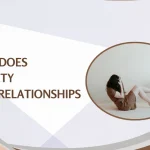In relationships, breaks can be a tricky topic. Some people believe that taking a break can help couples grow stronger, while others think it might lead to more problems.
Explore if breaks are bad for relationships, their benefits, risks, and expert insights on navigating them.
Table of Contents
the Concept of Breaks in Relationships

Defining a Relationship Break
A relationship break means that you and your partner have decided to temporarily spend some time apart from one another and your relationship. This time apart can help both individuals reflect on their feelings and needs.
Common Reasons for Taking a Break
There are several reasons why couples might choose to take a break:
- Feeling overwhelmed: Sometimes, long-term relationships can feel monotonous, and a break can provide clarity.
- Communication issues: If you find yourselves arguing frequently or not understanding each other, a break might help.
- Personal growth: Individuals may need time to focus on themselves and their personal goals.
How Breaks Differ from Breakups
It’s important to understand that a break is not the same as a breakup. While a breakup often signifies the end of a relationship, a break is meant to be a temporary pause. During a break, couples can still have the intention of coming back together with a renewed perspective.
Taking a break can be a healthy step toward gaining clarity in a relationship. It allows both partners to reflect on their feelings and what they truly want.
Potential Benefits of Taking a Break
Opportunities for Self-Discovery
Taking a break can be a chance to learn more about yourself. It allows you to explore your own feelings and desires. This time apart can help you reconnect with what you truly want in life and in a relationship. Here are some things you might discover:
- Your personal goals and dreams
- What makes you happy
- Your boundaries and needs
Room for Relationship Growth
A break can also help your relationship grow. Just like trimming a plant helps it flourish, stepping back can help you both see what’s important. It can clear away misunderstandings and allow for:
- Forgiveness of past issues
- New perspectives on your relationship
- A chance to appreciate each other more
Improving Communication Skills
When you take a break, it can improve how you talk to each other. Time apart can give you a clearer view of your feelings. This can lead to:
- Better understanding of each other’s needs
- More effective conversations when you reunite
- A deeper connection when you come back together
Taking a break isn’t the end; it’s a chance to grow and understand each other better.
In summary, while breaks can be challenging, they also offer valuable opportunities for self-discovery, relationship growth, and improved communication. Embracing this time can lead to a healthier and stronger bond in the long run.
Risks and Downsides of Relationship Breaks
Increased Uncertainty and Doubt
Taking a break can lead to increased uncertainty about the future of the relationship. This uncertainty can create feelings of insecurity, making both partners question their commitment and the direction of their relationship.
Potential for Unintentional Pain
If one partner wants a break while the other does not, it can lead to unintentional pain and resentment. This mismatch in desires can create emotional turmoil and hurt feelings, complicating the relationship further.
Risk of Drifting Apart
There is a significant risk of drifting apart during a break. Instead of coming back together stronger, partners may find that they have grown apart, leading to a permanent separation rather than a reconciliation.
Taking a break can sometimes feel like a solution, but it often brings more questions than answers. Understanding the potential downsides is crucial before making this decision.
In summary, while breaks can offer a chance for reflection, they also come with risks that can jeopardize the relationship. It’s essential to weigh these factors carefully before deciding to take a break.
How to Navigate a Relationship Break Effectively
Taking a break in a relationship can be tricky, but with the right approach, it can lead to positive outcomes. Here are some key steps to help you manage this time apart effectively.
Setting Clear Ground Rules
Establishing clear rules is essential. Before you start your break, sit down together and discuss what is acceptable during this time. Consider the following:
- How long will the break last?
- Will you stay in touch, or will it be a no-contact period?
- Are you open to dating other people?
Deciding on Communication During the Break
Communication can vary greatly during a break. It’s important to agree on how much contact you will have. Here are some options:
- Regular check-ins to share feelings.
- Complete silence to focus on personal growth.
- Occasional messages to maintain connection.
Establishing a Time Limit
Setting a specific duration for the break can help reduce anxiety. Decide on a time frame that works for both of you. This can prevent the break from dragging on indefinitely and help you both stay focused on your goals.
Taking a break is not the end; it’s a chance to gain clarity and perspective on your relationship.
By following these steps, you can navigate your relationship break with intention and care, ensuring that both partners feel respected and understood.
The Impact of Breaks on Long-term Relationship Stability
Understanding Relationship Churning
Taking a break can sometimes lead to a pattern known as relationship churning. This is when couples break up and get back together repeatedly. While it might seem normal for some, it can indicate deeper issues in the relationship.
Effects on Future Relationship Patterns
When couples frequently take breaks, it can affect how they handle future relationships. They might become used to breaking up and reconciling, which can create a cycle that is hard to escape. This can lead to:
- Increased anxiety about commitment
- Difficulty in trusting partners
- Challenges in establishing long-term stability
Balancing Distance and Intimacy
Finding the right balance between closeness and distance is crucial. A break can provide space for self-reflection and personal growth, but it can also risk drifting apart. Setting clear boundaries during a break can help maintain connection while allowing for individual growth.
Taking a break can be a chance to evaluate compatibility: a break provides an opportunity to reflect on your compatibility and whether your long-term goals align.
In conclusion, while breaks can offer a chance for growth, they also come with risks that can impact the long-term stability of a relationship. Couples should approach breaks thoughtfully, considering both the potential benefits and the possible downsides.
Expert Opinions on Relationship Breaks

Insights from Relationship Therapists
Many relationship experts believe that taking a break can be beneficial if done correctly. Setting clear expectations is crucial. According to therapist Kathryn Ford, MD, a healthy relationship often requires a balance of closeness and distance. She emphasizes that taking a break can help partners gain clarity about their feelings and needs.
Research Findings on Breaks
Research shows that breaks can lead to better understanding and communication between partners. However, the effectiveness of a break often depends on how it is approached. Here are some key points from studies:
- Breaks can help partners reflect on their relationship.
- They may reduce feelings of being overwhelmed.
- A well-timed break can lead to renewed commitment.
Case Studies and Real-life Examples
Many couples have shared their experiences with relationship breaks. Some found that a short break helped them reconnect, while others realized they were better off apart. For instance, relationship therapist Laurel Steinberg suggests that the break shouldn’t be more than a season, or three months long, to avoid drifting apart.
Taking a break can be a way to reset the relationship, gain clarity about your own needs, and foster a healthier connection with your partner.
In conclusion, while breaks can be a useful tool, they require careful planning and communication to ensure they serve their intended purpose.
Alternatives to Taking a Break
Seeking Relationship Counseling
One great option is to seek professional help. A counselor can provide guidance and support to help you both understand your feelings and improve your relationship. Here are some benefits of counseling:
- Neutral perspective: A counselor can help you see things from a different angle.
- Communication skills: You can learn how to express your feelings better.
- Conflict resolution: Counseling can teach you how to solve problems together.
Improving Communication Without a Break
Instead of taking a break, focus on enhancing your communication. Here are some tips:
- Set aside time to talk without distractions.
- Listen actively to each other’s concerns.
- Use “I” statements to express your feelings without blaming.
Exploring Other Conflict Resolution Strategies
If you’re facing issues, consider these strategies:
- Compromise: Find a middle ground that works for both of you.
- Time-out: Take a short break during arguments to cool down.
- Journaling: Write down your thoughts to clarify your feelings before discussing them.
Taking a break can sometimes feel like the only option, but there are many ways to strengthen your relationship without stepping away. If your relationship leaves you feeling drained and burned out, exploring these alternatives can help you reconnect and grow together.
Final Thoughts on Breaks in Relationships
In conclusion, taking a break in a relationship can be both good and bad, depending on the couple. For some, it offers a chance to think about themselves and what they want. It can help them grow and improve their communication. However, breaks can also create confusion and hurt feelings. They might even lead to drifting apart instead of coming closer. Every relationship is different, so it’s important to think carefully before deciding to take a break. If both partners are clear about their feelings and set rules, a break can be a helpful step. But if not handled well, it could lead to more problems. Ultimately, understanding each other and being honest is key to making any relationship work.
See More : Hiking Quotes : Positive Motivational
FAQ
What is a relationship break?
A relationship break is a temporary pause in a romantic relationship where both partners take time apart to think and reflect on their feelings and the relationship itself.
How long should a break last?
The duration of a relationship break can vary. It might be a few days, weeks, or even months, but it’s important to agree on a time limit to avoid confusion.
Can we communicate during the break?
Whether you talk during the break depends on the rules you both set. Some couples choose to have no contact, while others may check in occasionally.
What are the rules for a relationship break?
Rules can include how long the break will last, whether you can date other people, and how often you’ll communicate. It’s important that both partners agree on these rules.
Are breaks good for relationships?
Breaks can be beneficial as they allow for self-reflection and personal growth. However, they can also lead to uncertainty and may not always solve underlying issues.
What should I do during a break?
Use the time apart to reflect on your feelings, work on personal goals, and think about what you want from the relationship.
Breaks Are Bad For Relationships ?
Breaks in relationships can be detrimental, leading to a decline in emotional intimacy, trust, and communication. They can also create resentment, anger, and a sense of betrayal. Instead of taking a break, couples should focus on addressing issues and strengthening their bond through open communication, empathy, and compromise.










